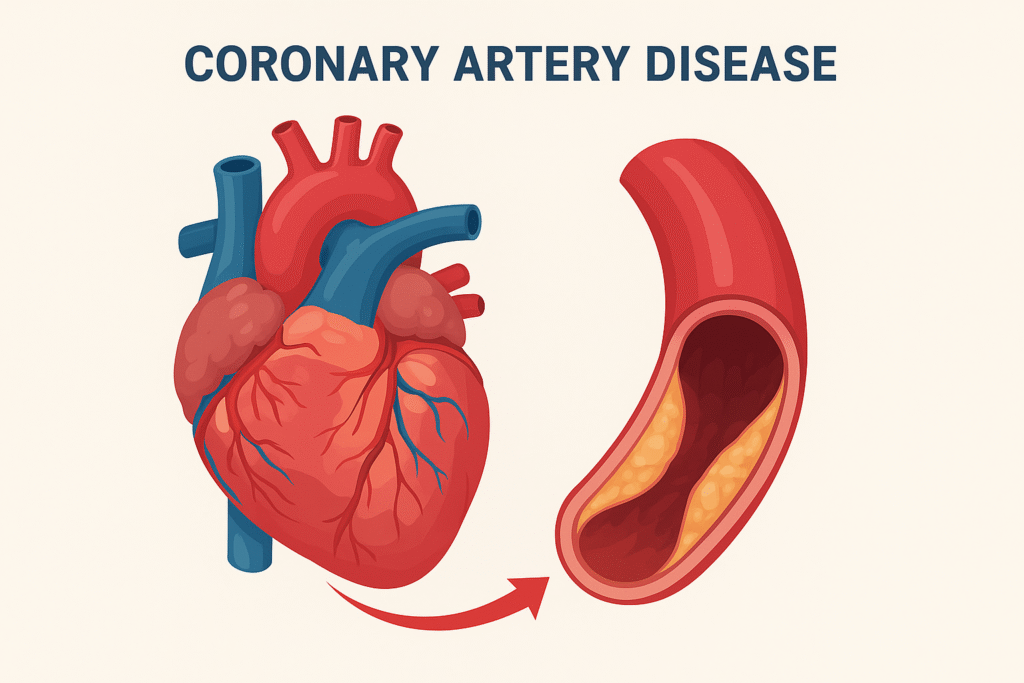Symptoms of Coronary Artery Disease
1. Chest pain or pressure (angina), especially during physical activity or stress
2. Pain radiating to arm, neck, jaw, or back
3. Shortness of breath
4.Fatigue, dizziness, or sweating
5.Nausea or feeling of heaviness in the chest
Some people may have “silent CAD”, showing few or no symptoms until a heart attack occurs — regular screening is essential.

